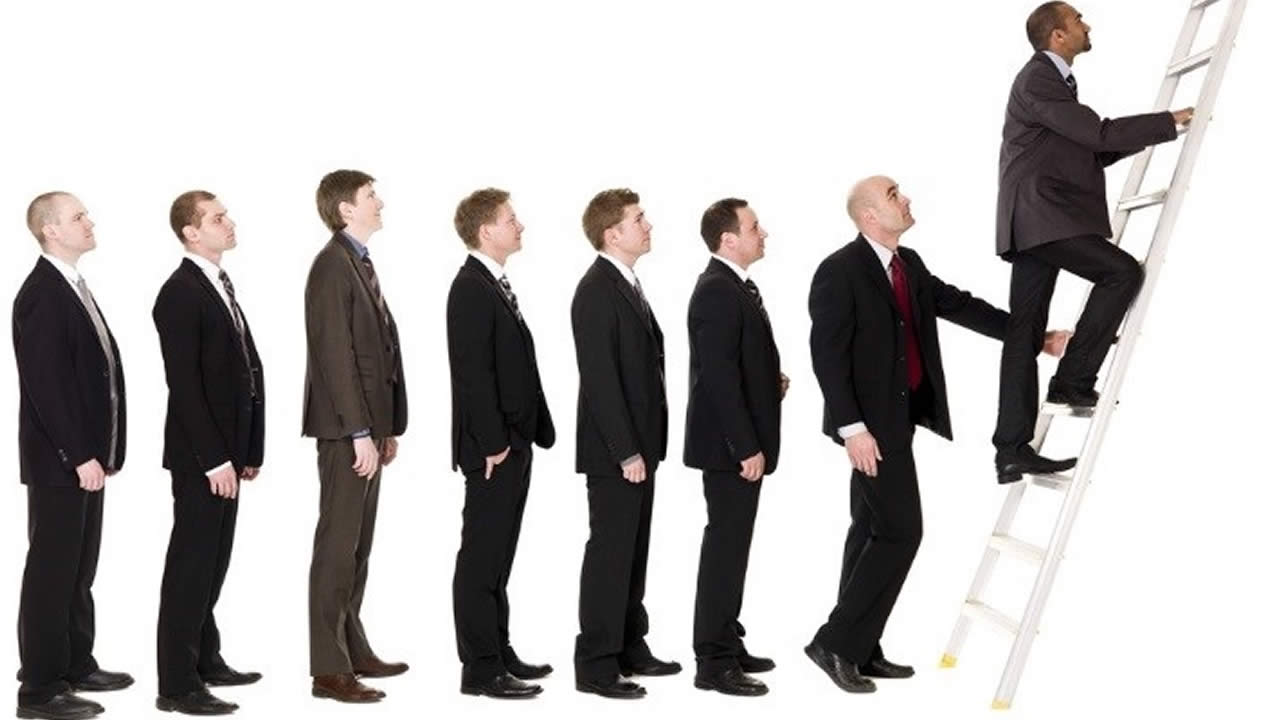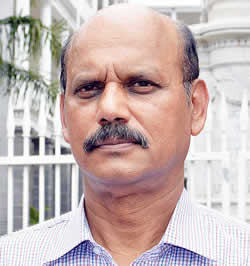

Promotion at work is made either on the basis of seniority or on the basis of merit or both. Seniority means the length of service put in by an employee in the organisation. Merit, on the other hand, means the qualification which an employee possesses. Any promotion exercise is bound to create uneasiness or frustration among staff.
One of the most challenging decisions faced by an organisation is the promotion standard that it would be adopting. Most institutions are in dilemma when they come to this juncture of setting up the organisational clauses. The human resource managers might favour a meritorious approach while the trade unions traditionally prefer to move up the ladder on grounds of seniority. Unfortunately, there is no definite answer to this riddle as both the sides of this quandary are supported by seemingly strong arguments.
THE DEBATE
Disregardful of the dissensions of the debaters, a generic promotion policy promotes the growth of employees on the parameters of skill and performance. But, such calibre can be evaluated only if the workers are monitored for a minimum timespan.
Having seen one side of the coin that speaks of performance, an introspection on the other side of the debate talks about another important benchmark of progress – the in-job experience. An experienced workman is an important asset to a company. All the time and resources invested on him gives the senior employee an extra edge when it comes to knowing the best way to perform a task.

Former top civil servant Prithviraj Fowdur argues that seniority does not mean productivity. Why should people work harder then? As long as they meet job requirements, all they have to do is wait for their turn. “As a private entrepreneur, I must get value for money,” he says.
Sen Ramsamy, MD of Tourism Business Intelligence, advocates promotion by merit only. “If they were that good, people having seniority should not be scared of losing. Merit does not mean giving to young employees only. All staff, whether seniors or young talents, should earn their promotion, not simply get a promotion. If one is good, old or new, he/she should be promoted,” says Sen Ramsamy.
He argues that politicians have also the art of promoting their guys on the pretext of merit-based. So all appointments and promotion should follow a strict process, both in government and private sector. For top jobs, an Appointment Committee, comprising of independent sector specialists, should decide.
“There is too much of hanky-panky business with ministers, and civil servants. The level of mediocrity in public institutions (not all) but generally, is unbelievable. Yes, I favour merit only, and that should be earned transparently!”
Ashwin Baijnath, an Executive in the ICT sector, believes that meritocracy should always prevail. “How can someone with no adequate educational background be eligible to chair a board or be the CEO? Many people with good merits are sitting idle at home when others with no merits are enjoying a high level lifestyle…Merit what you deserve. Dont deserve what you can’t merit,” he argues.

Economist Eric Ng says he favours promotion by merit as he believes seniority does not necessarily mean highly qualified or a high performer. “Meritocracy must always prevail.”

Radhakrishna Sadien : “Promotion is never automatic”
Trade unionist Radhakrishna Sadien, president of the Government Services Employees Association, explains that, contrary to general perception, promotion is not automatic in the public service. In addition to seniority criterion, qualifications, skills, and merit are also considered. “The managers do their job and evaluate the candidates.
Where some candidates are not up to the standard, they are and should be given the chance to improve. It's up to the managers to follow up on the employees to detect those who need a catch-up,” says the unionist, stating that such an exercise cannot be done on the eve of a promotion exercise but it should be a regular feature. He indicates that, even in cases where seniority prevails, there is always the experience and merit added to the selection criteria.
The unionist explains that the delegation of authority by the Public Service Commission to government departments and ministries has created an imbalance, in the sense that departments can freely recruit just anyone, and he is wary of a lack of transparency and favoritism in some cases. “This creates frustration among employees when someone with fewer qualifications occupies a higher position.” He also cites the example of officers who have been in actingship for years but who have not been promoted.
SENIORITY BASED PROMOTIONS
THE BRIGHT SIDE
- Talent Retention
One of the greatest challenges for an organisation is talent retention. People are constantly exploring new domains. The company would have an upper edge in appreciating its senior members for their longevity and overall commitment to the organisation. - No Favouritism
Employees would not be bogged down as to whether a peer might get into the good books of the manager and leapfrog him when it comes to the promotion. It ensures that the climb uphill the company’s summit takes a sense of loyalty and responsibility endured since time. - Leadership
A longer exposure in the industry, would adapt them with the potential to gauge what is to come as they have a better understanding of the organisational structure, thus, giving the seniors an upper hand when it comes to leadership roles.
THE PITFALLS
- A Routine Chore
The long work tenure could push them to a monotonic work life that has them performing tasks in a listless manner. This stops them from coming up with creative solutions or acquiring new skills, making them detrimental for the company’s growth. - No Motivation Factor
The new recruits who prune up their skills every other day would lose their drive to perform when they realise that the company has got no value for talent. This might again lead to high labour turnover and cost the company a fortune.
PROMOTIONS ON MERITROCRACY
THE BRIGHT SIDE
- A Healthy Competition
When promotions are on the basis of merit, it drives every individual to give his best and set the bar high for the rest of his peers. It puts the members of the organisation in a healthy competition, symbiotically benefitting both the parties. - Motivation
It helps the employee to picture his career growth within the organisation. Promotions on meritocracy instil a sense of competition amongst the recruits. It pushes the working class to inculcate an ambitious work approach and ensure that he is on top of his game. - Company’s growth
When every worker gives the best of himself, the company gets the best of all. A newbie with just a couple of months of experience will now try to bring him on par with a senior member. Everyone is willing to learn and adapt with the latest in the industry. The productivity is set soaring and the company evolves with all that is in vogue!
THE PITFALLS
- Favouritism
An inevitable dissension that arises from the “merit” based promotion is that the managers might favour their favourites. A newcomer with a great sense of style, a great accent or probably a relative of the lead always stands a chance for promotion amongst the rest. - The Standards of Measurement
The merit rating is not an easy standard that could be made fool proof. When it comes to performance enhancement, people tend to go beyond the company’s vision. This makes it inevitable for a standard to be affixed to gauge performance, since these advancements can only be perceived by humans. But, we are emotional beings and might one time or the other give in to our emotions.
Anusha Hurday : “Merit brings competition and productivity”
Anusha Hurday, a post graduate from King’s College, London and who masters the subject of productivity and efficiency at the workplace, is a strong proponent of promotion by merit. She sets out her views below.
Many people believe that promotion should be obtained by seniority based on experience and number of years they have worked for a company as they dedicated their time and efforts in helping the company to progress. In this process, people spend a number of years in the hope that one day they will get promoted but are left disappointed when younger employees with higher degrees and technological advanced skills join the company. But have we asked the question why? Instead of being disappointed and envying other colleagues...
I believe Promotion by Merit is very good for a healthy competition to prevail. Everyone including the seniors and the new starters need to be judged based on their performance and merit. If a person is working hard, deserving and making the company profitable, they should automatically be promoted. This way, the deserving person isn’t only encouraged to do better, but it also boosts his or her confidence making the latter work harder to achieve their goals.
Workplace should treat all employees equally and have equal opportunities. After all, everyone needs motivations to keep doing better instead of taking pride in being a senior and roaming around making others do part of work and then asking for credit. I disagree with this kind of unfairness towards newcomers just because they do not have experiences to show on their CV, they need to be submissive and bear injustices.
People who are doing well, cannot wait for a lifetime to attain certain seniority in order to be promoted. When a company rewards and motivate their employees on merits, this not only keeps everyone motivated but there is more productivity at the workplace as everyone is more involved in keeping their performance high, resulting in more competition and good work which benefits the company to be successful.
A few companies seek certain criteria and work experiences but if we don’t give new graduates an opportunity to demonstrate their capabilities, how will they be able show their talents? Companies should be unbiased. I disagree with the idea rating employees based on numbers of years of experiences. This is unfair. Some people who do not hold many qualifications or have years of experience can be better at work than a senior. Nepotism should also be discouraged. (For example: Companies and government should stop promoting people who have a political background or known by their family name. Meritocracy should prevail for the country to advance economically and be better off financially.
Have you noticed those employees that hold more merits are highly ambitious and usually give their best towards keeping their images and take pride for what they have achieved at such young age? I admit at first, somewhere and somehow freshers have to start from the lowest due to lack of experience. But when they are doing well, and showing more interest and efforts excelling in their field of work, to make it to the top, they should get credit for it. This will not only be a ladder towards growing in their career with a positive attitude, but they can also look forward towards promotions when they work harder. They are totally worthy of being rewarded if they are more meritorious than the seniors.
I believe for the growth and development of a company, it needs dynamic employees with more merits and those who are willing to work harder and demonstrate their capabilities, and perform at par with the seniors rather than those who have experience but who are not keen on showing willingness to take further career developments, to learn and adapt to new technologies. The success of a company, government department or any organisation is purely based on how dedicated and exemplary their employees and members are. It also brings positivity in a work environment as well as a country when merit is rewarded rather than traditional criteria of gratifying the experience holders. It not only promotes productivity but increases competition for further growth. Hence both the company and country benefits from rewarding merits at different stages.
 J'aime
J'aime














